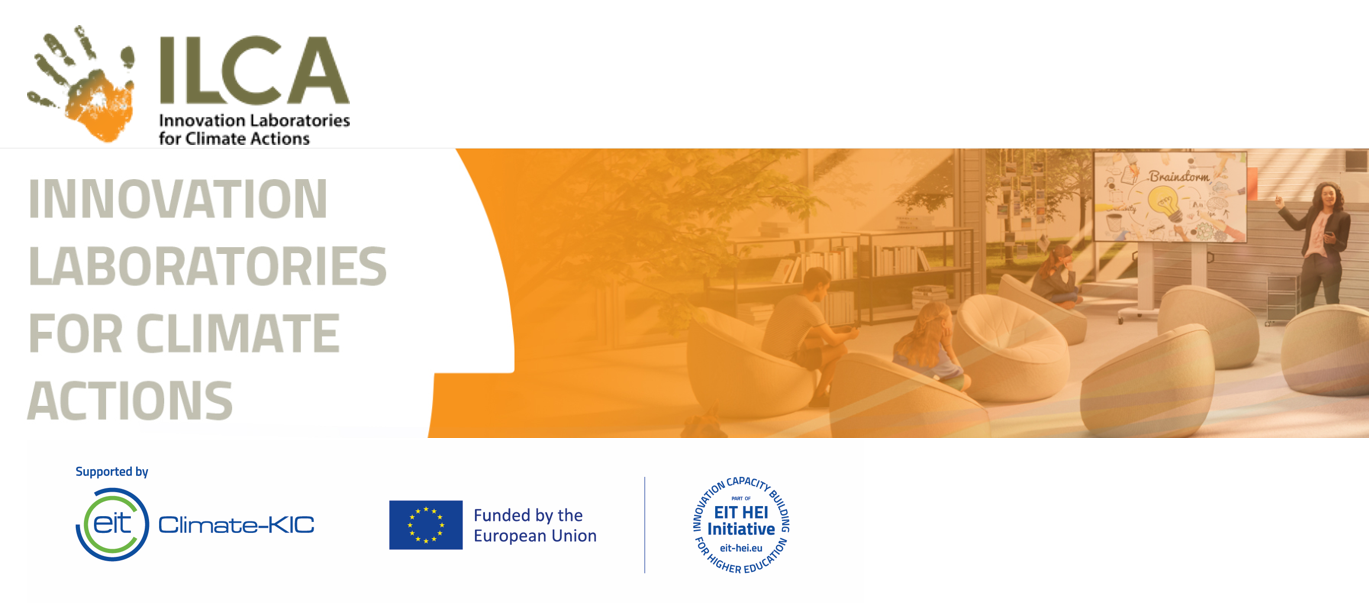VTDK
Project “Innovation Laboratories for Climate Actions- ILCA” 2022-2024
Vilnius College of Technologies and Design is participating in an EIT Climate-KIC EIT HEI Initiative project No 220194 Innovation Laboratories for Climate Actions - ILCA.
Implementation period: 2022-07-01 –2024 -06-30
Project summary:
ILCA project brings together four higher education institution (HEI) from five different countries, three research institutes as full partners, one public organization, one SME in ITC sector, and three industrial clusters uniting research organizations, with HEIs, public organizations and firms as associated partners.
The project aims to strengthen human capital in climate innovation and entrepreneurship for systemic problem solving. It advances multidisciplinary climate and social innovation capacity by establishing Climate Innovation Laboratories and involves ecosystem actors in the design of Climate Innovation. The preparedness and competitiveness of small- and medium-sized (start-ups, scale-ups) enterprises in climate transition & digitalization is supported.
The vision of the consortium is to become an engine and beneficiary of an integrated ecosystem for systems innovation and entrepreneurship and sustainable competitiveness in the service of the long-term impact on carbon-neutral, digital, circular, and inclusive society.
Project consortium:
- Savonia University of Applied Sciences, Finland (coordinating institution, savonia.fi)
- Vilnius College of Technologies and Design, Lithuania (vtdko.lt)
- University of Forestry, Bulgaria (ltu.bg)
- University of Suceava, Romania (usv.ro)
- Lithuanian Research Centre for Agriculture and Forestry, Lithuania (lammc.lt)
- Natural Resources Institute (Luke), Finland (luke.fi)
Project outcomes:
- Capacity building: At least 4 HEI adopt the “Climate Micro-credentials” that was developed, tested, and improved during the project.
- Ecosystem integration and engagement: At least 8 Climate & Social Innovation Projects will be developed in at least four different smart-specialization based innovation ecosystems.
- Regional growth and competitiveness: At least 32 start-ups, scale-ups will improve their capacities for climate transition and digital transformation and their overall competitiveness and growth.
- Institutional change: At least one multidisciplinary organizational mechanism and incentive system will be implemented to enable the integrative and systemic nature of HEI’s education, R&I activities.
Project results:
- At least 1472 trained & 144 mentored students and staff members.
- 4 new Climate Innovation Laboratories.
- Over 100 stakeholders engaged in the design of 8 Climate Innovation Projects.
- 32 start-ups/scale-ups supported and minimum 4 integrated as practical cases in each training program.
- 10 new partnerships established as a result of the project.







